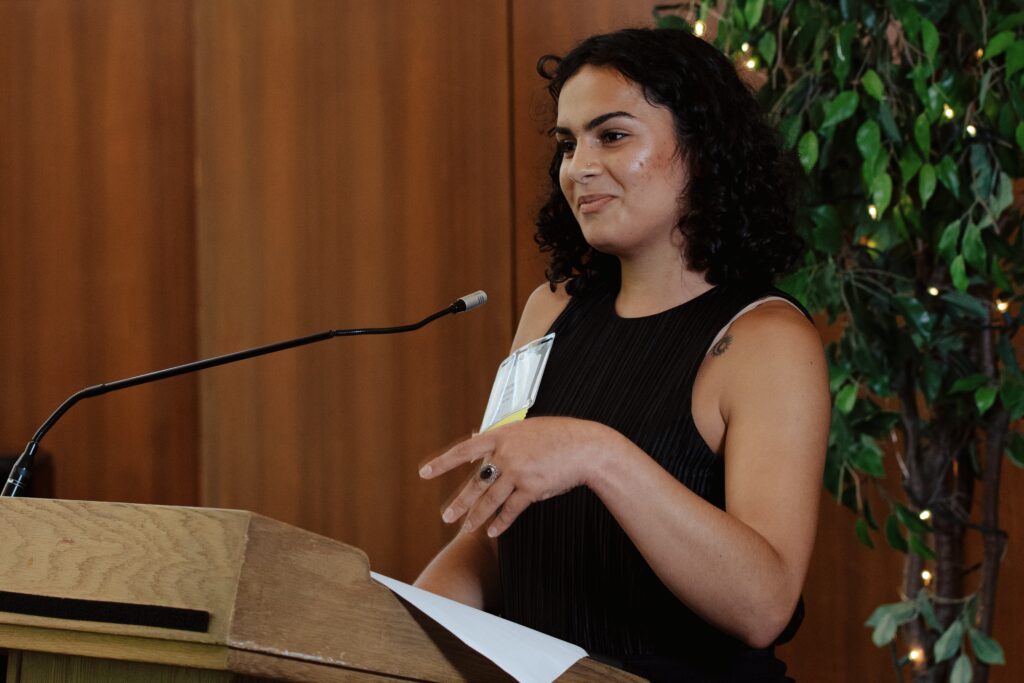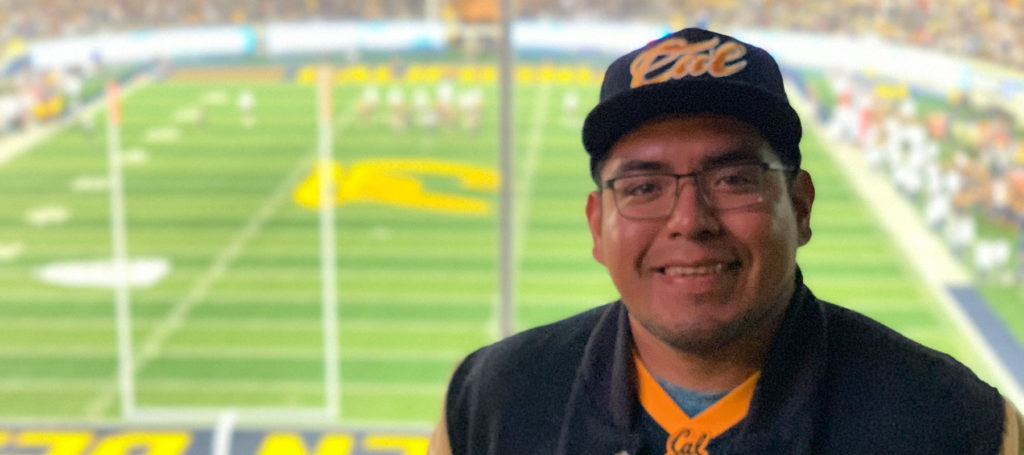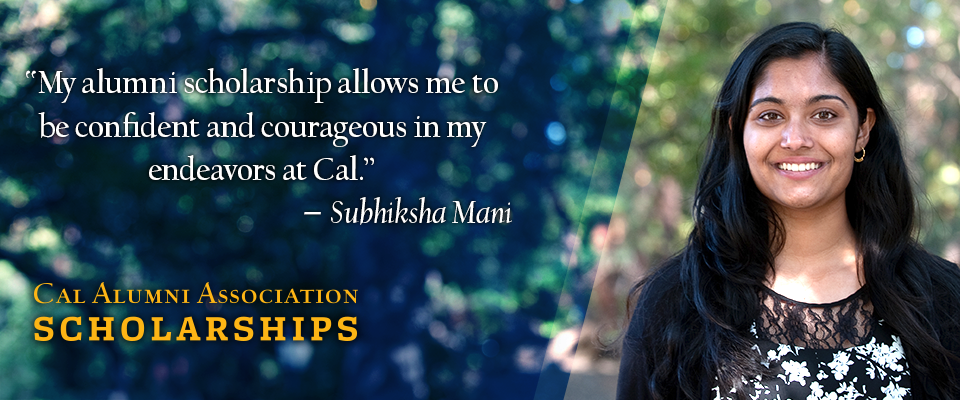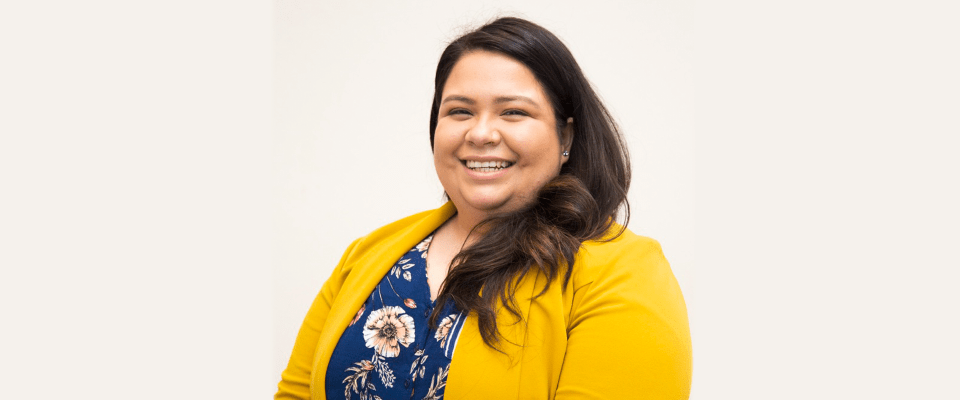
Villar was born and raised in Echo Park, a diverse Latinx neighborhood in Central Los Angeles, the first U.S. citizen born into a low-income and mixed-status family. Her Echo Park background provided a foundation for her future, one that even Villar herself didn’t expect. “I grew up navigating both school and what living in the United States meant for me, as someone who wasn’t undocumented.” Villar quickly found her voice, advocating for pro-immigration legislation within her community and organizing with local high school student groups. Through this activism and collaboration with like-minded students, she began learning more about college.
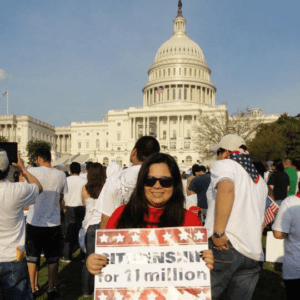
By her senior year of high school, Villar had completed prep classes and toured various universities, including UC Berkeley, where she committed.
Villar majored in geography. It wasn’t until her fourth year at Cal when she took a city planning class that incorporated elements of education, that she began considering a career in the field. Understanding the relationship between one’s neighborhood and educational trajectory, highlighted the biased inequity for Villar, and sparked her determination to create change.“That was the first time I saw the connection between where we live and where we end up going to college. That class led me to pursue opportunities in education more formally.”
After graduating from UC Berkeley, Villar worked as a college advisor, supporting students applying for college and financial aid. “Those four years [at UC Berkeley] were crucial to my identity formation, as someone who cared about social justice and wanted to impact education.”
“I was reminded of my own parents’ questions when I was applying for college. ‘What are loans? How do we navigate paying for college?’ A lot of the parents were Spanish-speaking, who otherwise would not be able to have that information if there wasn’t someone who spoke Spanish at the high school. I valued those experiences. I began to think, I’m getting all these students into college but what happens next? What happens once they’re in college?”
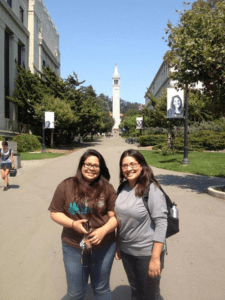
Determined to answer these broad questions and create sustainable change, Villar began working for the Alumni Scholars Program at the Cal Alumni Association, supporting first-generation low-income students like herself. After working for her alma mater for a couple of years, Villar found herself asking the same questions again.
“I realized it’s one thing to get into school, it’s another to thrive and actually be prepared for what comes after undergrad. I found myself asking again, ‘now what’? These students are graduating with their Cal degrees but what happens next? I was in a similar place myself. I’d gotten my degree, but what was next for me?”
Villar credits the COVID-19 pandemic and shut down for fully exposing the inequities within higher education, like access to affordable housing, and professional experiences for marginalized students. That newfound awareness motivated her to apply for graduate school.
In an effort to raise her graduate school tuition, Villar turned to social media. Thus, her Instagram account, Connect with Myrtha, was born. “I wanted community support, but I also wanted to give back in the process. Connect with Myrtha documented my own process of applying and going to grad school, and it allowed me to share resources.” What was once fondly called her side hustle, is now a pillar in her entrepreneurial business. “I grew up in a community where people had side hustles. People were their own entrepreneurs and, at the time, I didn’t even have the language to say “entrepreneur”. But people sold food or had side businesses that just the community knew about. And now that I’m on my own entrepreneurial journey, I think about how we have these skills already. As a community, we’ve learned to navigate the U.S. by having side hustles. I know how to do this and I know how to build systems to help myself and my community.”
Villar continues her commitment to students and young people like herself, and recently has begun providing career coaching. She credits the idea to her professional experience as a college advisor. “My mom would say she has a friend who has a student, can you connect with them? There were so many situations of students I met through friends and family, who I was able to connect with and guide through the college decision-making process.” That commitment to the community influenced Connect with Myrtha. “I think about this page as not just something to promote my services around career coaching and development but also to provide free resources which are easily accessible to young people.”
Villar is now completing a Master in Education program at the Harvard Graduate School of Education. Her program is specifically focused on leadership, entrepreneurship, and organization, which aims to utilize entrepreneurial approaches to solve broad or systemic problems within higher education.
“I’m always thinking about how we can make higher education more accessible, where first-generation and low-income students can feel excited to be there and not burdened,” she said. “Being from a Mexican background, being raised as a Latinx, and being queer, all of those intersecting identities were so crucial in my own navigation and success at and after Cal. Sometimes I’d think if I wasn’t this or that, things would be better. But because of the support I got from Cal mentors, both in the Latinx spaces and the queer spaces, I realized it wasn’t a negative thing. I can utilize these intersecting identities to empower myself and my community and direct change in ways that haven’t been done before.”
Villar says that retiring the “one size fits all” narrative is essential for the success of marginalized and low-income students. Recognizing that certain programs that might work for some students may not benefit others. When coaching students, she often asks what their day looks like, to understand who they are and what responsibilities they have outside of the academic realm.
“Some think I’m a student and that’s it but we’re not thinking about the little things you do outside of school that might give you the skills to apply for a scholarship. Things that are normal to us, as folks from marginalized backgrounds are not normal for students at large. Universities, particularly career services, can play a crucial role in helping students develop the language surrounding their skills.”
Villar aims to create positive systemic changes within the higher education system. Building positive change can start small, but can have a big impact. Recognizing the systems we operate within is the first step. “Access to higher education was intentionally not created for marginalized groups. And now that we’re here, we have to create opportunities that are intentional for us.”
First-Generation College Celebration is observed nationwide each November 8th, to honor the unique experiences, challenges, and accomplishments of first-generation students across the country. To learn more about UC Berkeley’s first-generation resources please visit: admissions.berkeley.edu/first-gen-resources










